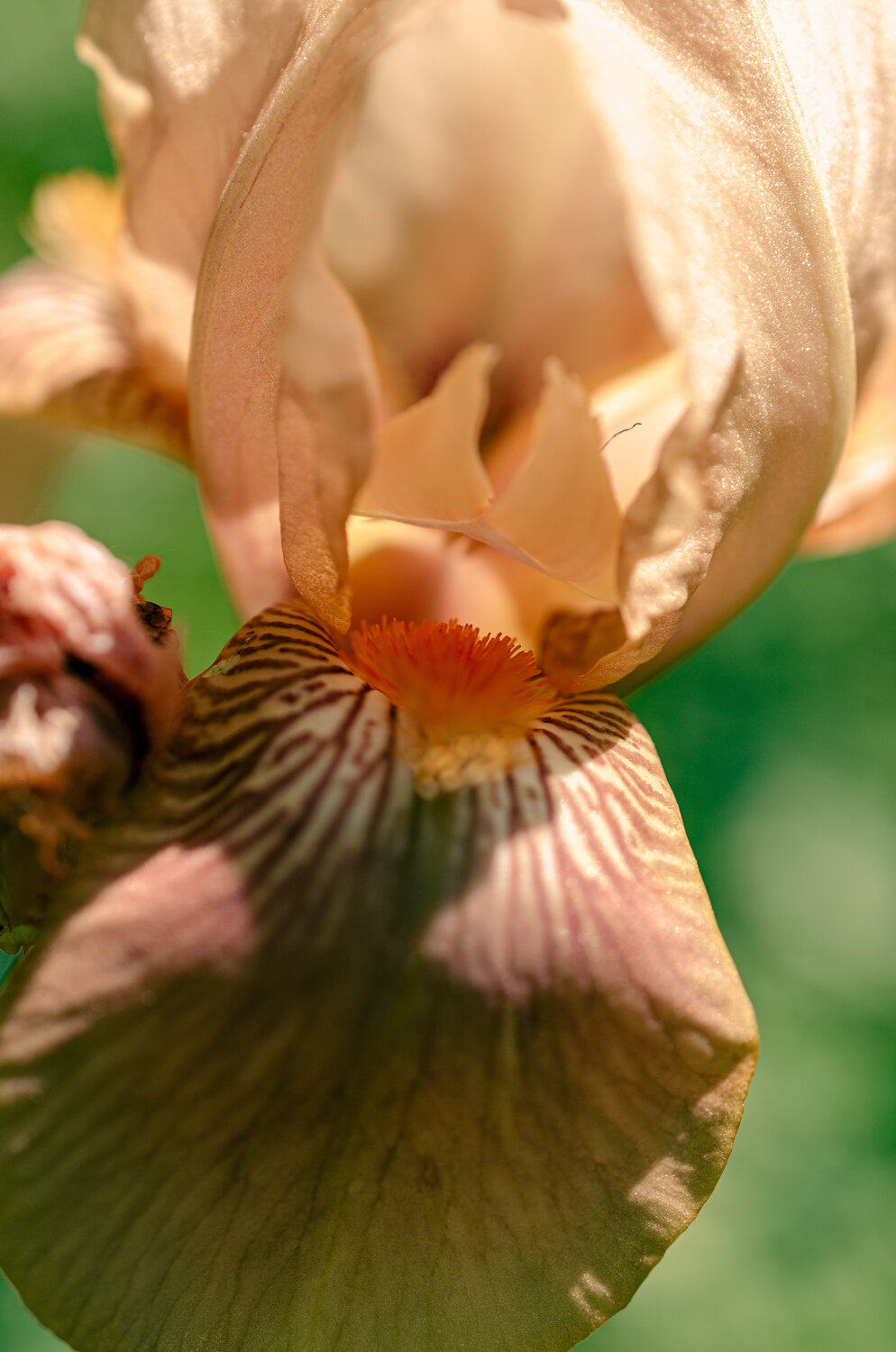For centuries, philosophers have wrestled with a deceptively simple question: what is humanity’s place in nature? Are we caretakers? Conquerors? Cosmic accidents with delusions of grandeur? From the serene balance of Taoist teachings to Genesis’s thunderous declarations of dominion, we’ve long debated whether nature is our companion or our quarry. These worldviews—man and nature versus man versus nature—still shape our choices more than we’d like to admit. And they echo, rather disturbingly, in that ancient catalogue of vices: the Seven Deadly Sins—pride, greed, wrath, envy, lust, gluttony and sloth.
But let’s set aside their biblical branding for a moment. Strip off the ecclesiastical robes and you’ll find something deeply human underneath—something almost genetic. These so-called “sins” aren’t just dusty moral scoldings; they’re evolutionary potholes, behavioural defaults that, if left unexamined, prove deadly. Yes, deadly— for our communities, economies, ecosystems and entire civilizations. Pride poisons leadership. Envy corrodes collaboration. Greed? Oh, don’t get us started.
Greed, in particular, has had a stunning PR makeover—recoded as greed-is-good ambition, innovation or just the market doing its thing. But a vice in a power suit is still a vice. And now that vice is accelerating climate change.
Which brings us—perhaps faster than we’re comfortable with—to the warming world outside our double-paned windows. The science isn’t just in; it’s been laminated, peer-reviewed and politely screaming for decades. The planet is hotter, storms are wilder and whole regions are slowly sinking, burning, or drying up. And yet, somehow, large swaths of the population continue to “debate” whether climate change is real, as if melting glaciers were a matter of opinion.
We know many “deniers” really aren’t confused—they’re arrogantly complicit. It’s not that they don’t believe the climate is changing; it’s that they believe they’ll be fine. That their big-assed pickups, bass boats and goosenecked glamping buses (or their gated communities, private jets, and platinum portfolio brethren) will outlast the consequences.
We cannot abide their wink-wink, nudge-nudge hypocrisy. Because in the end, it’s easier—and far more profitable—to let the world burn than to question whether our lives might need to change. As one now-viral observation puts it: “Humans are the only species that will choose extinction because it’s cost effective.”
Imagine that. We’re the only species clever enough to engineer our own demise—and cynical enough to call it a business model. Or, in the immortal words of George Carlin: “The planet is fine. The people are fucked.” We know better. We’ve always known better. But knowing isn’t enough. As Oscar Wilde quipped, “I can resist everything except temptation.”
Fiddle-dee-dee tomorrow is another day is killing us. Which raises the question: what does any of this have to do with planting a tree on Snob Hill?
We took a hint from David Bowie: “Tomorrow belongs to those who can hear it coming.” And, as poet Alexander Smith wisely observed, “A man does not plant a tree for himself. He plants it for posterity.” So, if we want a tomorrow worth hearing, maybe it starts with something as simple—and as stubbornly hopeful—as planting a tree right here.
This morning, we planted a Saucer Magnolia on the crown of Snob Hill—a place as self-important as its name suggests, but not without its... opportunities: a bit more shade, a bit less erosion, and maybe, with time, a whisper of Southern charm. The Saucer Magnolia, ubiquitous around here but never unwelcome, is all drama and grace—those blousy, tulip-shaped blooms arriving in a flurry of pink and white just when winter has overstayed its welcome. It’s the kind of tree that doesn’t just grow; it poses. Perfectly at home with Snob Hill’s own flair for the dramatic, the Magnolia fits right in—elegant, a little showy, and unapologetically distinctive.
Experts estimate there are approximately a trillion trees on our planet, a staggering number that underscores both the scale of nature and the fragility of what we risk losing. While this single, “little” tree might seem like a small gesture against the overwhelming tide of climate change, it’s one of the few choices firmly within our grasp. After all, from the tiniest acorn grows the mightiest oak — and every mighty forest begins somewhere. Based on something a local “old timer” told us, 100 or so years ago, our property was a cherry orchard. We find that a little hard to believe — cherries in Missouri? But we love the idea.
Finding the tree, however, turned into a minor quest. We made the “mistake” of asking for help on a native plants social media group, assuming—naively—that plant people were, you know, helpful. Instead, we were met with a chorus of strident responses, dripping with condescension and composted outrage. Apparently, suggesting a Saucer Magnolia is tantamount to ecological treason. Keyboard botanists (read: dilettantes with strong, albeit sometimes well-intentioned, opinions) lined up to scold us for daring to covet a tree that wasn’t born and raised in our zip code.
But guess what? These so-called “destable invaders” flourish in our area, bloom like a Mardi Gras parade float and are exactly the sort of botanical drama that Snob Hill demands—native or not. In the end, we found a glorious specimen on Etsy, of all places. That’s right: The same place you buy ironic tote bags and artisanal beard oil came through with a tree worthy of center stage. Delivered. In. The. Mail!
Side note: In defense of the native plant people, we understand and seek to make good plant choices. That’s why we spent no small amount of money to remove the four Bradford Pears we planted on the streetside hill. They truly were “trash trees” and we sorely regret planting them.
So, yeah, it’s only one tree in a trillion, but that’s one more tree than we had on Snob Hill before. And, true confessions, we planted three other trees this year, in what we hope are the last trees we’ll ever be planting. Realistically, though, it’s only a matter of (too-soon) time before at least one tree—the pin oak—gets the axe. And if we’re being brutally honest, we’re probably looking at a triple feature of arboreal tragedy once you factor in the two Chinese elms, both of which have been slapped around by ice storms like they owe winter money. Those brittle little drama queens snap under pressure—literally.
As for the pin oak, it’s already circling the drain, thanks to a charming little scourge known as gouty oak gall and its evil twin, horned oak gall. These were brought to us by microscopic wasps from the Cynipidae family, which inject their eggs into the tree’s branches like tiny tattoo artists with a death wish. The tree reacts by forming grotesque little growths—galls—that slowly choke off its own limbs. So unless we’re ready to commit to years of pruning, expensive injections and, ultimately, the cathartic, galling roar of a chainsaw, that pin oak is a goner. But hey, we’re planting trees faster than we’re losing them—so far. Snob Hill: come for the pretension, stay for the arboreal attrition. Our arborist says the pin oak has several, somewhat healthy years in it before we have to euthanize it.
To hedge our bets (and possibly our property line), we also planted three native redbuds—because nothing says “we care about the environment” like driving two hours round-trip in a gas-powered vehicle to pick up Earth-saving trees from a nursery in the middle of the state. Sustainability, but make it scenic. The third redbud just showed up one day, sprouting defiantly through a tear in the landscape fabric and gravel by the back gate like a tiny green middle finger to our garden plans. Naturally, we yanked it out of its scrappy little birth canal and gave it a new home, fully expecting it to perish out of spite or botanical stubbornness. Every expert warns redbuds hate being transplanted, especially when you go poking at their precious taproots. But this one? It’s thriving. Possibly out of spite. And yet, we respect that energy.
For the past 30 years, our stewardship of Snob Hill has been the contribution of a walnut tree, delicate Japanese maples and four (now down to three) heirloom apple trees that somehow survived our well-intentioned chaos. Among the legends of our arboreal empire is the Lady Apple tree—a sapling planted when our oldest son was just about his height. We have a photo to prove it: tiny kid standing next to a tiny tree, both awkwardly gangly and full of promise. Now? Despite being branded a “semi-dwarf” (which apparently means “surprisingly tall”), that Lady Apple is pushing 20 feet into the sky. That’s one heck of a growth chart for both kid and tree.
Planting trees is more than landscaping; it’s a vote for the future. Lucy Larcom nailed it best: “He who plants a tree plants hope.” It’s poetic, optimistic and honestly, a little stubborn—just like us. Because in a world where our one trillion tree friends are fighting pests, storms and climate chaos, every seedling we shove into the dirt is a middle finger to despair and a soft promise that maybe, just maybe, the future will be greener.
So, here’s to trees: our leafy, stubborn little symbols of hope, standing tall (or semi-dwarf) on Snob Hill, daring whatever comes next to try and knock them (and us) down.




